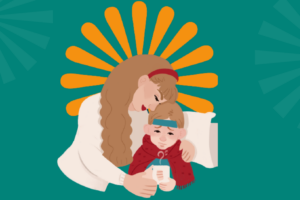While there are many orders in the Family Court, there are two types of court orders for domestic abuse (‘injunctions’) that you may be able to apply for:
There are also Prohibited Steps Orders, Specific Issues Orders, Child Arrangement Orders and Port Alerts. Listen to Cris McCurley and Tina McInerney talk about legal options now:
To get an order, you will need to fill out legal forms and give formal evidence to the court. You can get support with this.
If you live in England or Wales, you may qualify for legal aid if you have evidence that you or your children have been victims of domestic abuse or violence. If you are receiving universal credit or welfare benefits, you may qualify for legal aid. To apply for legal aid, you will need to give a copy of your 3 most recent bank statements, 3 months’ worth of payslips or evidence of benefits and a letter showing proof of rent.
Tina is an Irish Traveller woman and she asked family lawyer Cris McCurley the common questions we hear on the helpline. Listen below:
For a step-by-step explanation of the process, you can watch the video made by Advice Now here. It is 20 minutes long, so be aware of this before you click play.
To find local support, insert your postcode below:

If you are experiencing domestic abuse and worry about your children’s safety, would you like a family member to support you by minding the children? This is called kinship care.

Whether you choose to stay in the relationship or leave, there are safety issues and risks to think about. Read this list of tips to keep yourself safe.